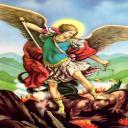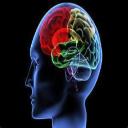Yahoo Answers is shutting down on May 4th, 2021 (Eastern Time) and beginning April 20th, 2021 (Eastern Time) the Yahoo Answers website will be in read-only mode. There will be no changes to other Yahoo properties or services, or your Yahoo account. You can find more information about the Yahoo Answers shutdown and how to download your data on this help page.
Trending News
Is the common treatment of the trial of Gallileo the truth?
I expect a great deal of hate and outright nonsense on this one. Here is an excerpt from the Catholic side of the controversy from. http://www.catholic.com/tracts/the-galileo-controv... Gallileo stepped outside the bounds of science and into the world of theology, which was none of his business. Let me quote.
"Many people wrongly believe Galileo proved heliocentricity. He could not answer the strongest argument against it, which had been made nearly two thousand years earlier by Aristotle: If heliocentrism were true, then there would be observable parallax shifts in the stars’ positions as the earth moved in its orbit around the sun. However, given the technology of Galileo’s time, no such shifts in their positions could be observed. It would require more sensitive measuring equipment than was available in Galileo’s day to document the existence of these shifts, given the stars’ great distance. Until then, the available evidence suggested that the stars were fixed in their positions relative to the earth, and, thus, that the earth and the stars were not moving in space—only the sun, moon, and planets were.
Thus Galileo did not prove the theory by the Aristotelian standards of science in his day. In his Letter to the Grand Duchess Christina and other documents, Galileo claimed that the Copernican theory had the "sensible demonstrations" needed according to Aristotelian science, but most knew that such demonstrations were not yet forthcoming. Most astronomers in that day were not convinced of the great distance of the stars that the Copernican theory required to account for the absence of observable parallax shifts. This is one of the main reasons why the respected astronomer Tycho Brahe refused to adopt Copernicus fully.
Galileo could have safely proposed heliocentricity as a theory or a method to more simply account for the planets’ motions. His problem arose when he stopped proposing it as a scientific theory and began proclaiming it as truth, though there was no conclusive proof of it at the time. Even so, Galileo would not have been in so much trouble if he had chosen to stay within the realm of science and out of the realm of theology. But, despite his friends’ warnings, he insisted on moving the debate onto theological grounds.
In 1614, Galileo felt compelled to answer the charge that this "new science" was contrary to certain Scripture passages. His opponents pointed to Bible passages with statements like, "And the sun stood still, and the moon stayed . . ." (Josh. 10:13). This is not an isolated occurrence. Psalms 93 and 104 and Ecclesiastes 1:5 also speak of celestial motion and terrestrial stability. A literalistic reading of these passages would have to be abandoned if the heliocentric theory were adopted. Yet this should not have posed a problem. As Augustine put it, "One does not read in the Gospel that the Lord said: ‘I will send you the Paraclete who will teach you about the course of the sun and moon.’ For he willed to make them Christians, not mathematicians." Following Augustine’s example, Galileo urged caution in not interpreting these biblical statements too literally.
Keppler and Copernicus also proposed Heliocentricty. Why weren't they censured? The church at the time, employed noted astronomers and was not anti science. Read the article. I now await your hate.
4 Answers
- MattLv 79 years agoFavorite Answer
You are correct. The Roman Catholic Church has NEVER been anti science. How can you be anti-science if you have dozens of scientific discoveries, you invented the hospital, big bang theory, university and other amazing things we take for granted, you ran observatories and labs of all types, you inspired and educated tens of thousands of the best scientists and you see science as a gift to help us understand God's creation.
So many people think the Catholic Church is anti-science and it just proves their ignorance.
Better yet, millions think Catholics hate the theory of evolution. We don't. We don't take a position that you have to believe it or not. This is partly because while it is a good theory in many ways - it is not perfect and does not explain every species on earth. Some species came to be in their current state outside of evolution. Doesn't mean that evolution is bad - just it is not a theory that can be easily applied to every species in existence.
Source(s): Proud Roman Catholic - NousLv 79 years ago
So you seek to justify the inhumanity of the Catholic church in forcing him not just to recant his theory but to write much of what you claim and then if that was not enough they put him under house arrest for the rest of his life to die a prisoner!
All you have proved is just how nasty the catholic church was then and how nasty people still are who try to excuse their inhuman and unchristian conduct!
Of course people like yourself must be incandescent with rage that the Catholic church apologized for their treatment of Galileo and stated that he was correct!
Did you ever believe in a loving god or have you always been out to make Catholics look so bad?!
- 9 years ago
I see a seeming contradiction in your argument:
"Gallileo stepped outside the bounds of science and into the world of theology, which was none of his business."
"The church at the time, employed noted astronomers and was not anti science. "
- Anonymous9 years ago
Gallileo was put on trial for reasons of Church politics, and because he trod on the Pope's toes.




